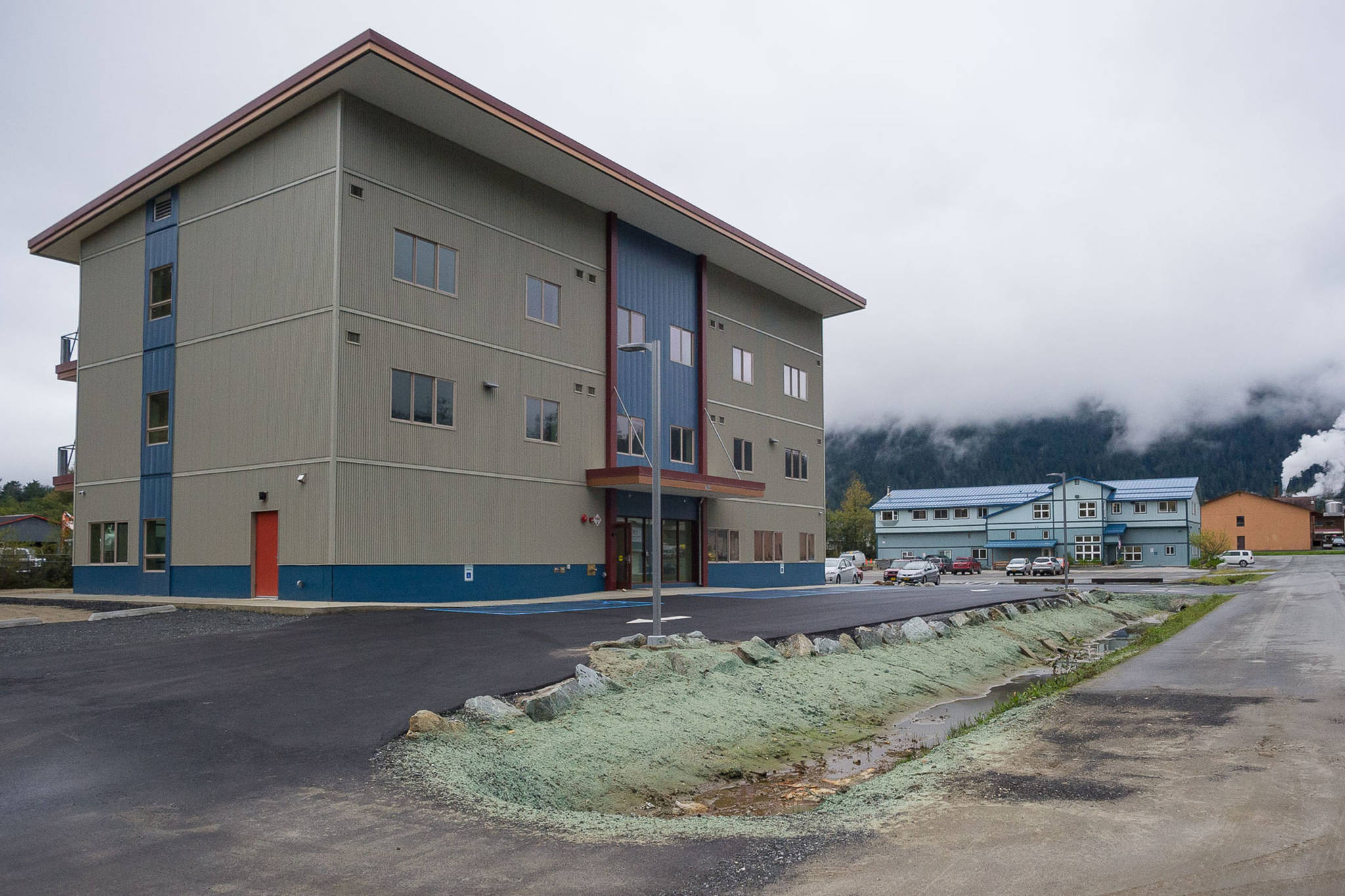Applause is rare at City and Borough of Juneau Assembly meetings, but many in attendance broke into a standing ovation during Monday’s meeting.
The Assembly members voted unanimously to provide a $1.8 million grant to expanding Housing First if the Juneau Housing First Collective secures another grant. The news comes as Housing First — which provides housing for the chronically homeless — approaches its one-year anniversary.
Multiple members of the JHFC have explained that grant money from the Alaska Housing Finance Corporation (AHFC) became available much sooner than expected, which spurred them to ask the Assembly for additional funding to help complete the project. The grant is worth $2.8 million, according to the ordinance that was passed Monday.
JHFC has not yet secured the grant, but board member Mariya Lovishchuk said municipal support is a key factor in whether the grant is approved.
“This means that we have a really good chance to receive the Alaska Housing and Financing Grant,” Lovishchuk said. “This provides significant cash support for the program and shows Juneau’s really serious about solving our chronically homeless problem.”
The application for the AHFC grant is Oct. 5, she said, and the board is working on that application now.
According to the ordinance, $1.2 million of the $1.8 million will come from sales tax revenue. The city will take $400,000 from tobacco tax revenue and $200,000 from the city’s general savings.
Lovishchuk had tears in her eyes outside the meeting as she was interviewed, explaining how surprised she was that this second phase is happening so quickly. The plan has been to expand the facility, which opened in late September 2017, but she and other board members didn’t expect the money to be available this quickly.
The JHFC originally set a goal to more than double the size of the building and add 45 new rooms in addition to the current 32 rooms. In a letter to the Assembly, JHFC board member Bruce Denton wrote that the JHFC talked with city officials and determined that it was more realistic, in terms of the time and money available, to add 32 more units instead of 45 units.
A memo from MRV Architects stated that the overall cost of construction would be just shy of $6 million. Denton’s letter to the Assembly estimated that $2.8 million would come from the grant, $1.8 million from the city, and the remaining $1.3 million coming from the Rasmuson Foundation, the Alaska Mental Health Trust Authority, an Indian Community Development block grant and the Juneau Community Foundation and other local sources.
The city committed funds to the original building of the facility as well, eventually contributing a total of $2.7 million to the build.
A few members of the public testified at Monday’s meeting in support of the expansion. Heidi Brocious, a professor of social work at the University of Alaska Fairbanks, spoke about a UAF study that was done during the first six months of Housing First being open.
The UAF study compiled statistics specifically about the residents of Housing First and their usage of emergency care. Prior to living in Housing First, according to the study, the residents of the facility visited the emergency room 360 times in the six months prior to moving in. In the six months after moving in, they went to the emergency room 97 times (a decrease of 73 percent).
Brocious passed out copies of the study’s findings to the Assembly members, and said she believes the improvements are remarkable.
“When you come across a program like Housing First and you see numbers like I’m about to share with you, that maybe you’ve heard, it’s nothing short of amazing from a research perspective and an effectiveness perspective,” Brocious said.
• Contact reporter Alex McCarthy at 523-2271 or amccarthy@juneauempire.com. Follow him on Twitter at @akmccarthy.

